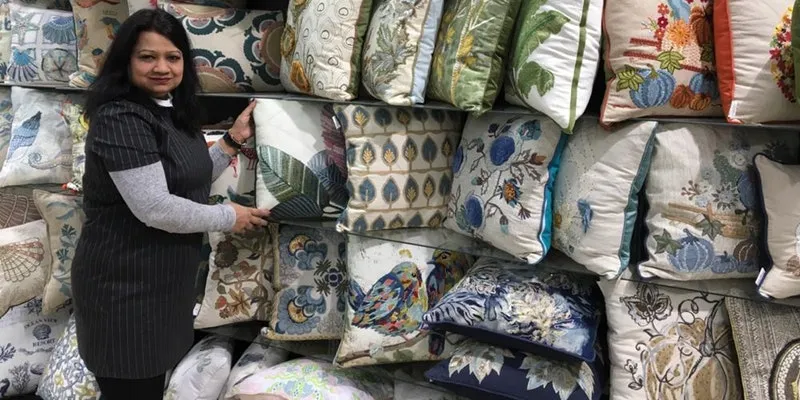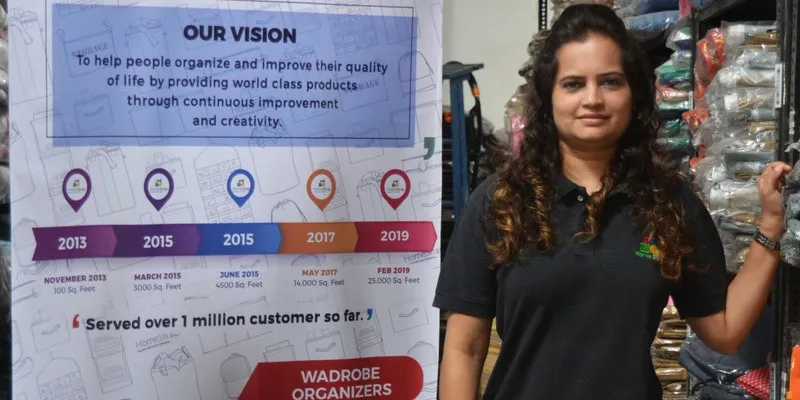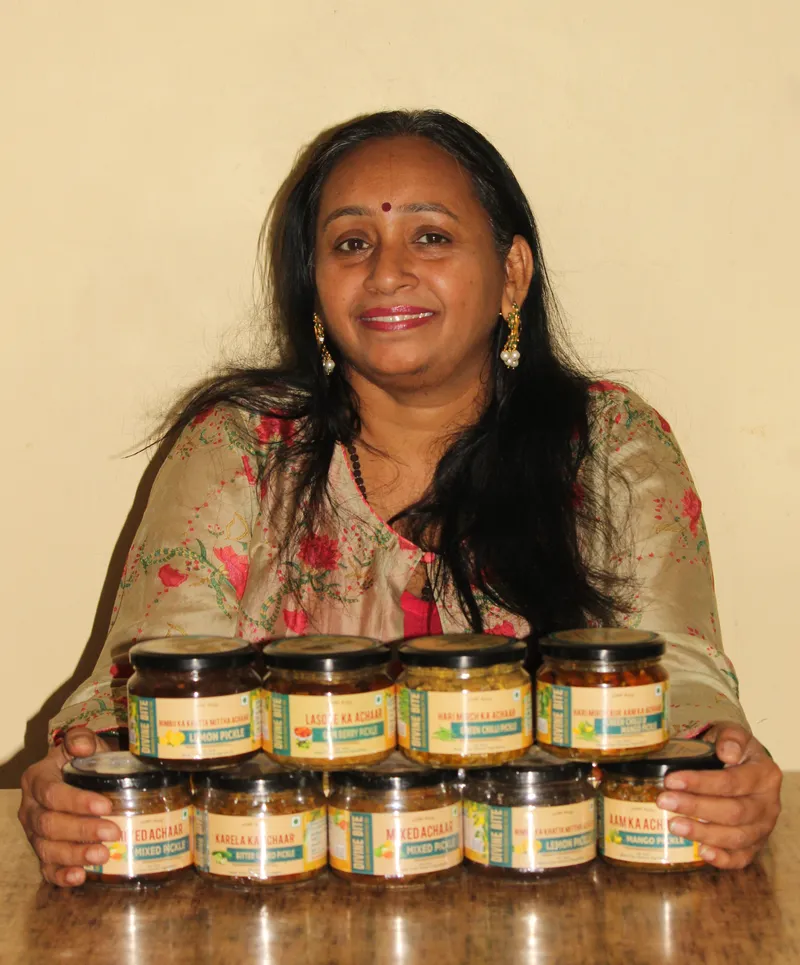Walmart helped these women entrepreneurs scale their businesses and earn in lakhs and crores
Meet women entrepreneurs Babita Gupta, Priyanka Mehta, and Ruchi Mathur. With the help of Walmart’s WEDP programme, they have successfully scaled their businesses and are raking in profits.
Women entrepreneurs need all the help they can get. They may dream big, be willing to put in large amounts of hard work, even raise funds to kick-start their businesses, but there is a lot more to entrepreneurship than just these.
That’s why it’s important for women entrepreneurs to receive unstinted support in every area of their business – whether it’s hiring the right team, checks on quality control, costing, distribution, marketing, branding, and economies of scale.
Launched in 2016, Walmart’s flagship WEDP programme has provided professional training to more than 150 women-owned businesses for opportunities in retail, factories, farming, and entrepreneurship.

Krish Iyer, President and CEO of Walmart India, tells HerStory, “Walmart’s Women Entrepreneurship Development Programme (WEDP) is designed to help women business owners build robust businesses through training on variety of modules, thus making them more competitive and resilient in today’s dynamic business environment. Over three batches, we have trained 150 women business owners, and sincerely hope WEDP has created a pipeline of diverse suppliers for the industry at large, including but not limited to Walmart India.”
Meet these three women entrepreneurs, who have started or scaled their businesses and are now earning in lakhs and crores after receiving help from the WEDP programme.
Babita Gupta, Sarangi Creations

Delhi-based Babita Gupta calls herself an accidental entrepreneur. Nineteen years ago, Babita, moved by the plight of her domestic help who wanted to earn an extra income, took the help of her husband to give them “finishing” work in their soft furnishings family business.
Soon, through word of mouth, 20 women began working in the factory. As Babita supervised, explained, and taught, it dawned on her that this work had the potential to be an independent venture. That’s when she decided to take charge of the subsidiary unit of their family business, Jute Palace.
As part of the first batch of the WEDP programme in 2015-16, Babita learned a lot about different aspects of business, other than the production line she supervised at the factory.
“I wanted to be involved in other aspects like finance, distribution etc, which the family was not very supportive of. So, I decided to turn entrepreneur with Sarangi Creations in 2007, and manufacture soft furnishings like cushion covers, dhurries, jute bags, bedsheets, etc.,” she says.
Babita took a loan by mortgaging her house and selling off her jewellery to buy sewing machines and furniture for the factory. Today, she receives considerable support from Walmart to sell her products in online markets. She also employs 20 women at the factory, all from underprivileged sections of society.
Her business has seen a 100 percent growth, with profits increasing month on month, along with a 60-80 percent increase in turnover.
“I want to capture the domestic market in a big way and am looking forward to expanding my venture in that direction,” she says.
Priyanka Mehta, Ravee Marketing

Priyanka Mehta’s business, Ravee Marketing, under which she operates the Homestrap brand came out of an everyday experience: organising her room.
While doing so, she stumbled upon the thought of organising clutter in an aesthetic and efficient way. She thought of how her mother and aunts used to wrap up stuff in old bedsheets, use boxes as containers, but these options were hardly pleasing to the eye.
Priyanka was not new to entrepreneurship. Armed with an MBA, she had started her first venture in event management, which she gave up when she had a child.
Now, organising clutter aesthetically was a thought that grew in her mind and that she shared with her husband. After some market research, she decided to set up the Homestrap division with five to 10 SKUs; this has today grown to 650 SKUs in storage solutions for home, kitchen, bedroom, outdoors, etc.
“We have a warehouse and manufacturing unit in Indore, where we have 80 women artisans and 150 women in all from economically backward sections of society. The premises are spread over 37,000 sq ft. We are totally an ecommerce company where our products are sold online and our numbers are now expanding on Flipkart,” she says.
“My association with WEDP has boosted my confidence a lot, helping me believe the sky is the limit. I learned a lot through the programme – branding, strategising, costing, GST, and HR,” she adds.
The company’s projected turnover for 2019-20 is around Rs 16 crore, having served over 1.2 million customers.
“I want to turn my brand into a household name. I have plans to introduce products ranging from metal sheets to wood, and become a one-stop shop for all kinds of storage essentials,” Priyanka says.
Ruchi Mathur, Divine Bite Pickles & Foods

This is the story of how a teacher-turned-housewife turned her family’s love for pickles into a profitable business. After giving up her teaching job, Ruchi Mathur remained a housewife for 12 years. Once she shifted to Ghaziabad, the itch to do something on her own surfaced. The first business idea that came to her mind was making pickles, something she was good at, and that her family supported wholeheartedly.
Investing just a lakh in the business and with help from the Krishi Vigyan Kendra, Ruchi started making different kinds of pickles. At an MSME, a fortuitous meeting with a representative from Walmart, she says, changed her business life forever.
In January last year, she enrolled in the WEDP programme, and says it was akin to a mini-MBA course. “I learned all about working with suppliers, costing, reducing wastage, etc. Following this, I also on-boarded my brand with Flipkart,” she says.
Working from home, with the help of four permanent staff and some outsourced, Ruchi produces around 500 to 1,000 kg of pickles in a month. These include traditional and seasonal varieties like mango, green chilli, red chilli, garlic, bitter gourd, jackfruit et. This year, she also introduced Delhi’s favourite Gajar-gobhi-shalgam pickle and is happy with the response she’s getting.
“My aim is make pickles according to people’s tastes and ensure they are pure and chemical-free,” she adds.
Ruchi reveals her sales are between Rs 1 lakh to Rs 1.5 lakh per month. After her manufacturing unit is in place, production will be increased to four to five tonnes a month, and revenues will increase accordingly.
“I do face challenges like labour shortage and high overheads, but then every business is challenging,” she says.
In the future, she wants to shift to completely organic produce and organic oils.
(Edited by Teja Lele Desai)









